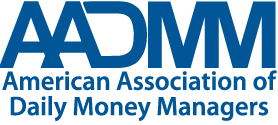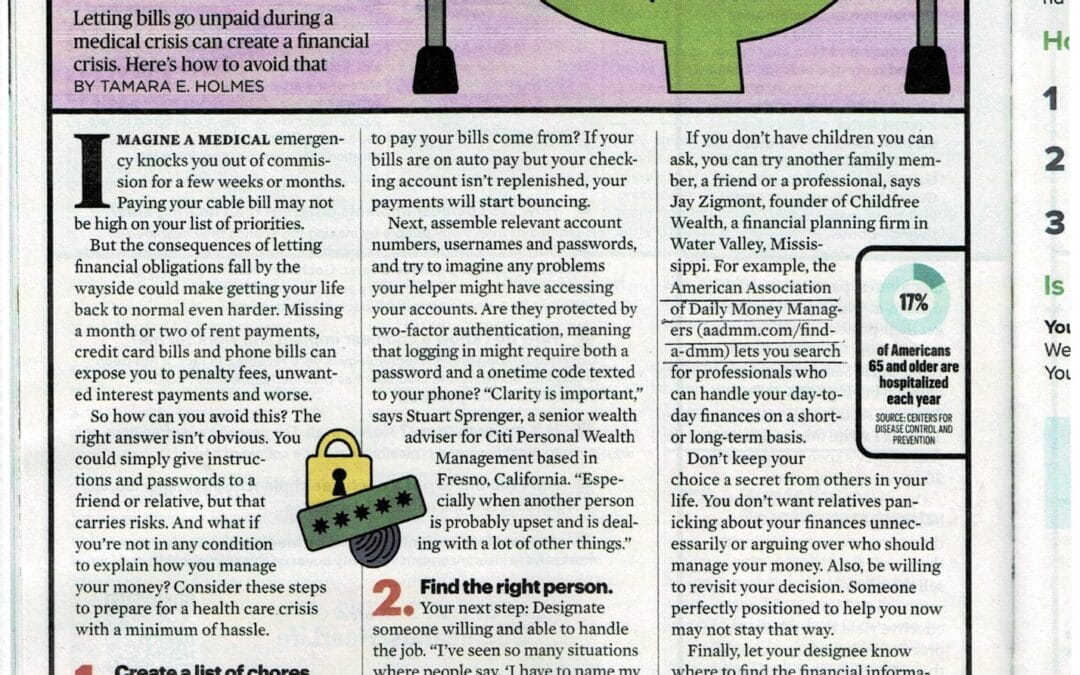AADMM was recently featured in the print edition of AARP Magazine:
Imagine a medical emergency knocks you out of commission for a few weeks or months.
Paying your cable bill may not be high on your list of priorities.
But the consequences of letting financial obligations fall by the wayside could make getting your life back to normal even harder. Missing a month or two of rent payments, credit card bills and phone bills can expose you to penalty fees, unwanted interest payments and worse.
So how can you avoid this? The right answer isn’t obvious. You could simply give instructions and passwords to a friend or relative, but that carries risks. And what if you’re not in any condition to explain how you manage your money? Consider these steps to prepare for a health care crisis with a minimum of hassle.
1. Create a list of chores.
Start by writing down a comprehensive list of your regular bills, expected deposits and any other information your helper would need to handle your day-to-day financial obligations for a period of up to six months. Which payments are on autopilot, and which do you write checks for? Where does the money to pay your bills come from? If your bills are on auto pay but your checking account isn’t replenished, your payments will start bouncing.
Next, assemble relevant account numbers, usernames and passwords, and try to imagine any problems your helper might have accessing your accounts. Are they protected by two-factor authentication, meaning that logging in might require both a password and a onetime code texted to your phone? “Clarity is important,” says Stuart Sprenger, a senior wealth adviser for Citi Personal Wealth Management based in Fresno, California. “Especially when another person is probably upset and is dealing with a lot of other things.”
2. Find the right person.
Your nextstep: Designate someone willing and able to handle the job. “I’ve seen so many situations where people say, I have to name my oldest child,” says Stacy E. Singer, national practice leader for trust and wealth advisory services at the Northern Trust Co. in Chicago. “Well, that’s great, but make sure your oldest child is able to do it, has the time to do it and is the kind of person who does those things well.”
If you don’t have children you can ask, you can try another family mem-ber, a friend or a professional, says Jay Zigmont, founder of Childfree Wealth, a financial planning firm in Water Valley, Mississippi. For example, the American Association of Daily Money Managers (aadmm.com/find-a-dmm) lets you search for professionals who can handle your day-to-day finances on a short-or long-term basis.
Don’t keep your choice a secret from others in your life. You don’t want relatives panicking about your finances unnecessarily or arguing over who should manage your money. Also, be willing to revisit your decision. Someone perfectly positioned to help you now may not stay that way.
Finally, let your designee know where to find the financial information you’ve prepared-say, in an envelope in your lower desk drawer.
The full version of this article can only be found in the Feb/Mar 2024 Print Edition of AARP Magazine.











